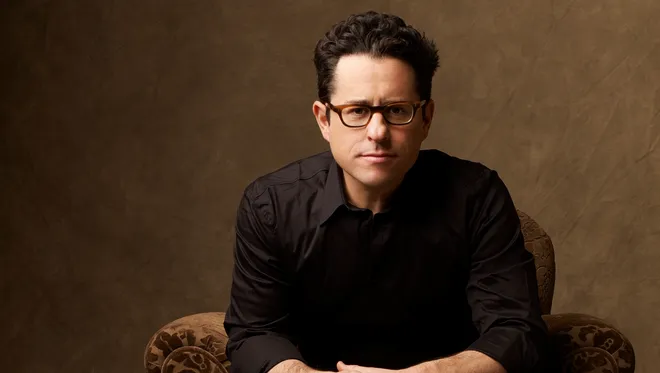In 2025, Alycia Debnam-Carey delivered what many critics are calling the most powerful performance of her career in Netflix’s limited series Apple Cider Vinegar. In a bold and emotionally layered role, she portrays Milla Blake—a character loosely inspired by wellness figure Jessica Ainscough and whose narrative parallels the infamous Belle Gibson saga. The series doesn’t just follow one woman’s descent into self-delusion and deception; it holds up a mirror to the culture that enabled it, and to the broader conversation around health misinformation in the digital age.
For Debnam-Carey, Apple Cider Vinegar marks more than just another project—it represents a leap. Known previously for strong performances in genre television, she steps into new territory here, embodying a character whose complexity demands both empathy and critique. Her portrayal of Milla Blake is not only emotionally raw but also culturally relevant, offering a portrayal that cuts through the noise of the wellness industry and examines how belief, branding, and desperation can collide with tragic results.
The Role of Milla Blake: Truth, Performance, and a Culture of Belief
Milla Blake enters the series as a charismatic but quietly desperate figure. Diagnosed with a rare form of soft tissue cancer in her twenties, Milla is initially seen navigating a conventional medical system that leaves her disillusioned and fearful. When she turns away from chemotherapy in favor of “natural” alternatives, she finds a supportive and rapidly growing audience online—one that validates her every post, purchase, and promise.
Debnam-Carey plays Milla with haunting restraint. Her early optimism isn’t saccharine—it’s magnetic. She convincingly sells Milla’s belief that she’s healing herself with juicing regimens, yoga retreats, and Gerson Therapy, a controversial treatment involving strict dietary protocols and coffee enemas. But as the disease progresses and cracks begin to show in her carefully curated social media persona, Debnam-Carey shifts. Her performance tightens. Her gaze becomes haunted. Her voice falters in key interviews. She doesn’t just play a woman dying—she plays a woman trying to maintain control of a narrative she no longer believes.
This slow unraveling is where Debnam-Carey’s acting finds its most devastating register. She captures the internal war between Milla’s fear, pride, and the pressure to appear “healed” for her followers. It’s a performance built on contradiction—at once soft and brittle, seductive and sickening. Through Milla, the show interrogates the cult of wellness and the seductive, often dangerous pull of pseudoscience.
A Story Rooted in Reality
Apple Cider Vinegar draws heavily from real-life cases like that of Belle Gibson, the Australian influencer who falsely claimed to have cured her brain cancer through alternative therapies. The show doesn’t directly reference Gibson but mirrors many of the same beats: the Instagram fame, the book deals, the app, the sudden unraveling, and the public outrage. The character of Milla Blake is also part homage to Jessica Ainscough, known as “The Wellness Warrior,” whose public battle with cancer and rejection of conventional treatment inspired followers around the world—until her death in 2015.
By fictionalizing these stories into a composite character, the series avoids becoming a true-crime exposé and instead focuses on emotional and ethical nuance. Milla isn’t portrayed as a con artist or a martyr. She’s both victim and perpetrator, someone who believes in her message even as she begins to suspect its falsehood. The show makes no easy judgments, and Debnam-Carey leans into that ambiguity with grace and precision.
Critical Acclaim and Industry Recognition
From its debut at the 2025 Sundance Film Festival to its global release on Netflix, Apple Cider Vinegar quickly became a cultural flashpoint. Critics across the board praised the show for its smart writing, bold direction, and most of all, for Debnam-Carey’s performance. Variety described her portrayal as “a masterclass in restraint and revelation,” while The Guardian called it “the performance of the year—uncomfortable, unflinching, unforgettable.”
The series has sparked significant public discourse about the role of influencers in health advocacy, the ethics of monetizing illness, and the blurry line between belief and manipulation. It’s been the subject of op-eds, academic think pieces, and countless social media debates. In Australia, where both Debnam-Carey and much of the story’s real-life inspiration hail from, the series reignited conversations around the regulation of health claims on digital platforms.
Debnam-Carey is already being discussed as a frontrunner for major acting awards in 2025. Early buzz suggests a likely Emmy nomination, and the role has all the ingredients award bodies tend to recognize: transformation, cultural resonance, and emotional depth.
Alycia Debnam-Carey: A Career Evolution
For long-time fans of Alycia Debnam-Carey, this role represents the culmination of years of steady, thoughtful work. After breaking out as Commander Lexa in The 100, she became a cult favorite—known for her stoic intensity and compelling screen presence. Her performance on Fear the Walking Dead further expanded her fanbase, giving her a leading role on a major franchise.
But Apple Cider Vinegar is different. It’s quieter, more internal. There are no action sequences, no post-apocalyptic threats. Just a woman, a disease, and a camera lens—one she controls, and one that watches her unravel.
In interviews, Debnam-Carey has spoken about how deeply personal this role felt to her. She’s discussed her interest in the ethical dilemmas of wellness culture and her desire to play a character whose strength lies not in physical resilience, but in emotional truth. Her ability to fully inhabit Milla without turning her into a villain or a saint speaks to a maturing artistry.
This performance builds on the momentum she gained in 2023, when she received an AACTA Award nomination for The Lost Flowers of Alice Hart. In that role, too, she played a woman navigating trauma and silence. But Apple Cider Vinegar gives her the kind of role that defines careers. It’s not just a highlight—it’s a turning point.
What Makes
Apple Cider Vinegar
Matter
What separates Apple Cider Vinegar from other cautionary tales about the internet age is its refusal to moralize. It never shames Milla’s choices or her audience’s willingness to believe. Instead, it invites viewers to reflect on how easily misinformation thrives when it’s wrapped in sincerity and aesthetic appeal.
The series also critiques the commodification of health and the performative nature of wellness culture. It poses difficult questions: Why do we trust certain voices over medical consensus? What responsibility do influencers have when their messages impact people’s lives? And when, if ever, does belief become betrayal?
Debnam-Carey’s performance grounds these themes in something personal. Her portrayal of Milla’s physical decline is heartbreaking, but what lingers is the psychological toll. The fear of being exposed. The pressure to inspire. The isolation of being a brand before being a person.
Visually, the show supports this narrative with a cool, desaturated palette that contrasts with Milla’s sunlit online posts. The direction underscores the difference between the image she sells and the life she lives—a choice that amplifies Debnam-Carey’s performance without overshadowing it.
Expanding Horizons: What’s Next for Debnam-Carey
Following the success of Apple Cider Vinegar, Alycia Debnam-Carey is poised for her next major leap—into blockbuster territory. She’s set to appear in the sequel to Godzilla x Kong: The New Empire, part of the Monsterverse franchise, slated for release in 2027. It’s a shift into a different kind of performance: large-scale, high-concept, and likely action-heavy.
While it’s a departure from the introspective roles that have defined her recent career, it also represents a strategic move. With her critical acclaim firmly established, joining a globally successful franchise gives her a broader platform and the opportunity to showcase her versatility to an even wider audience.
Industry insiders are watching closely. Can she bring the same level of nuance to a sci-fi epic as she did to a character like Milla Blake? If her past work is any indication, she’ll bring depth and intelligence to the screen—no matter the genre.
Impression
In Apple Cider Vinegar, Alycia Debnam-Carey doesn’t just play a woman caught in a lie. She plays someone who desperately wants to believe in her own narrative, even as the truth becomes impossible to ignore. It’s a role that challenges the viewer as much as the performer—and Debnam-Carey meets that challenge with extraordinary skill.
This performance marks a definitive shift in how the industry sees her—not just as a sci-fi heroine or genre favorite, but as a serious dramatic actor with range and courage. She didn’t just take a risk with Apple Cider Vinegar. She owned it.
As conversations around health misinformation and online influence continue to evolve, this series will remain relevant. And Debnam-Carey’s portrayal of Milla Blake will remain a benchmark: a reminder of how fiction can force us to reckon with fact, and how great performances can push us to question the world around us.
No comments yet.








